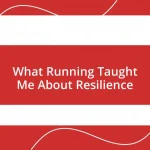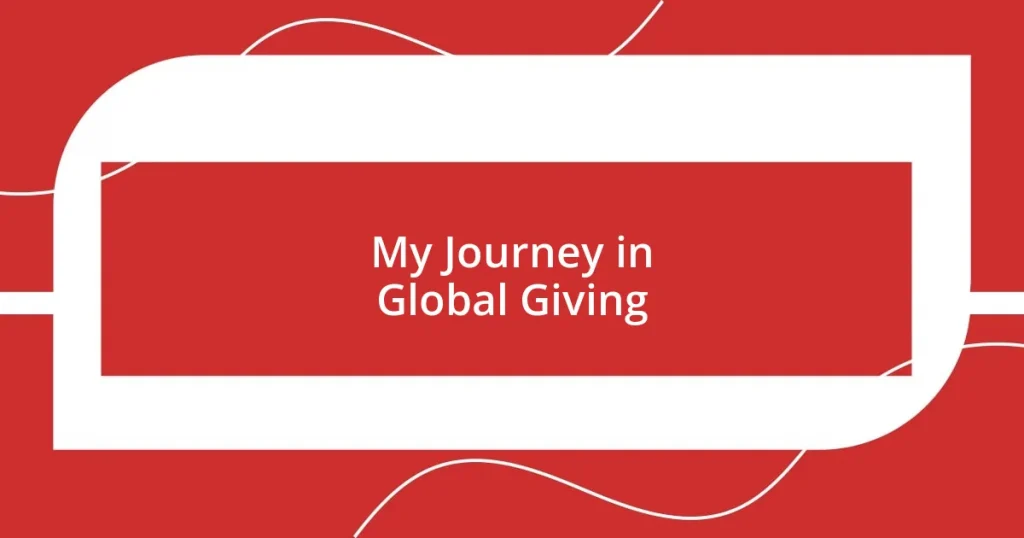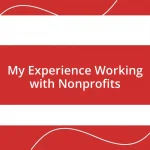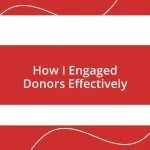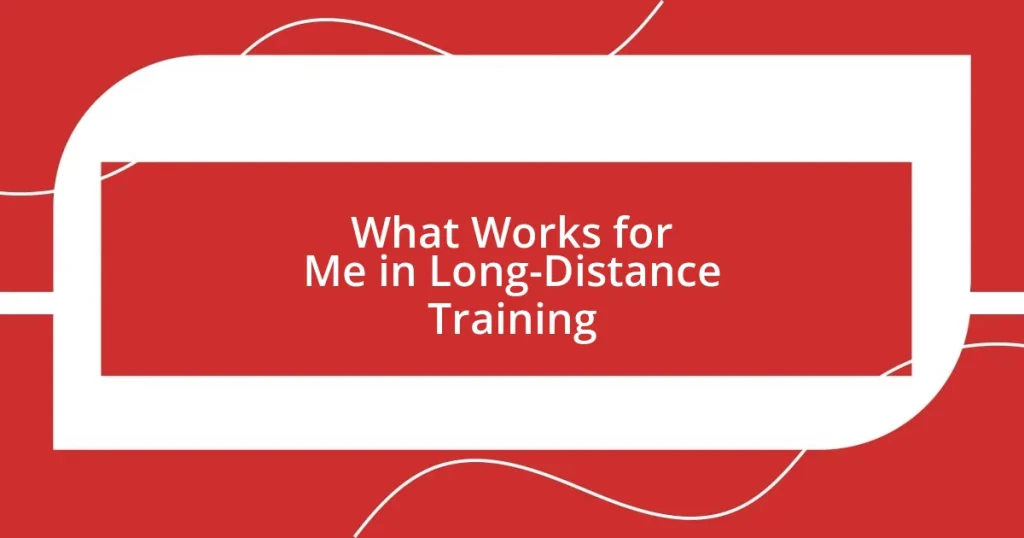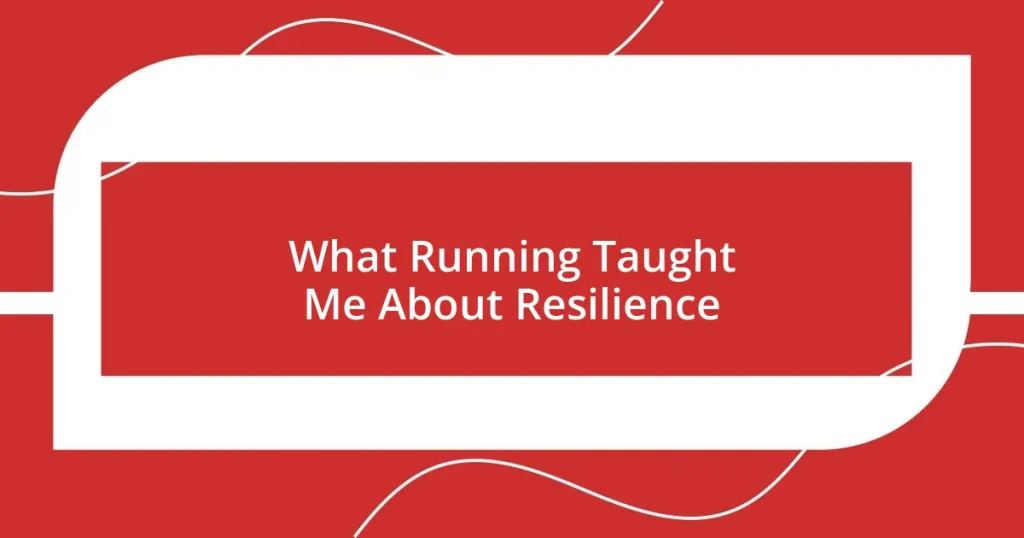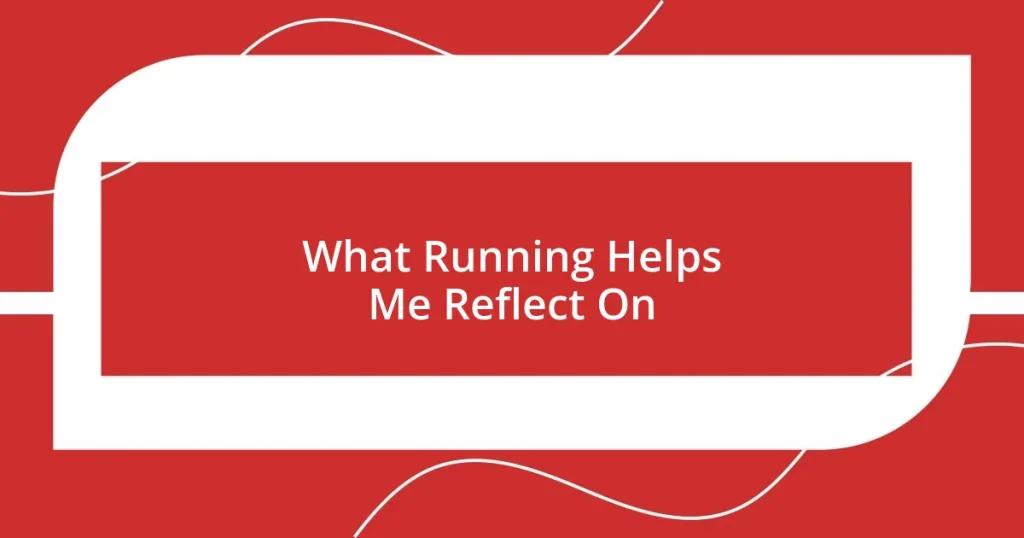Key takeaways:
- Global giving initiatives create significant impact through community engagement and transparency, fostering trust between donors and organizations.
- Personal experiences, like volunteering and participating in charity events, highlight the emotional connections and relationships built through philanthropy.
- Overcoming challenges in giving, such as choice paralysis and feelings of inadequacy, can be addressed by focusing on personal passions and embracing setbacks as learning opportunities.
- Storytelling and collective involvement in giving efforts inspire others and deepen understanding of global issues, creating a ripple effect of generosity.
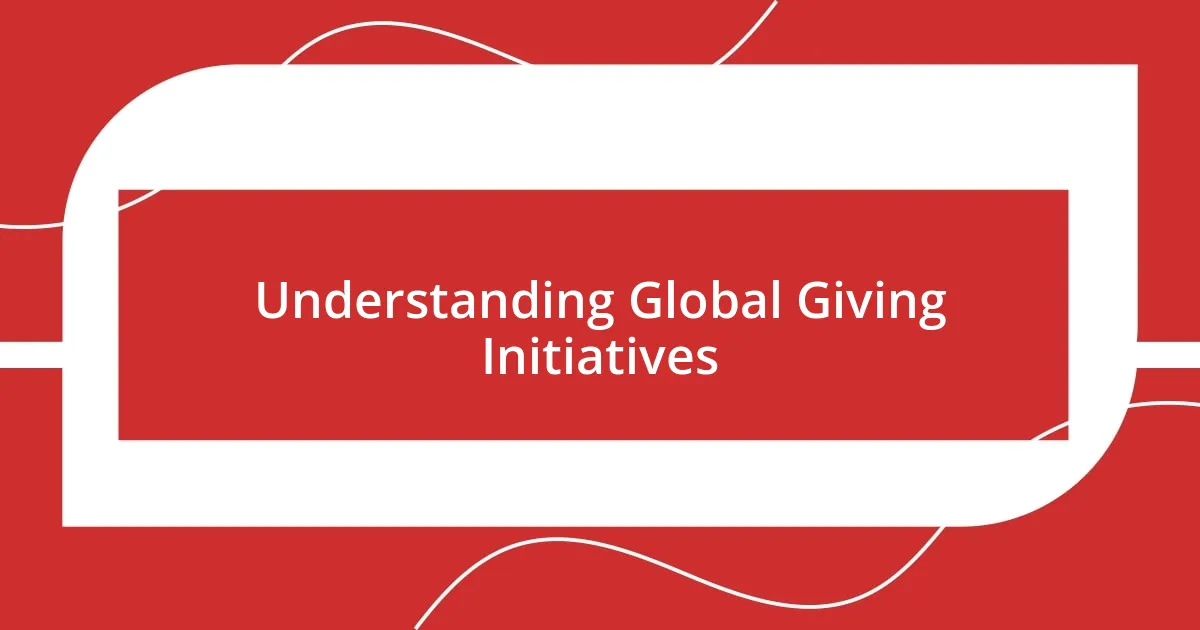
Understanding Global Giving Initiatives
Global giving initiatives are about making meaningful connections across borders. I remember when I participated in a fundraising project for a clean water initiative in Africa. It struck me how a simple donation could have a profound impact on a community’s health and well-being. Isn’t it incredible to think a small act can turn into a ripple effect, changing lives in ways we often can’t see?
When we delve into the diversity of these initiatives, it becomes clear that they reflect the unique needs and values of different communities. For instance, I once read about a program that provided educational resources to children in war-torn regions. The emotional weight of knowing these children dream of education amidst chaos moved me deeply. How can we not be inspired to give when we see such resilience?
Moreover, understanding these initiatives involves recognizing the importance of transparency and accountability. I’ve seen firsthand the difference clear reporting makes in building trust between donors and organizations. Have you ever wondered how much your contribution truly impacts the cause? Knowing where your funds go and who they help is vital for building that trust, and it motivates me to continue supporting initiatives that are open and honest about their work.
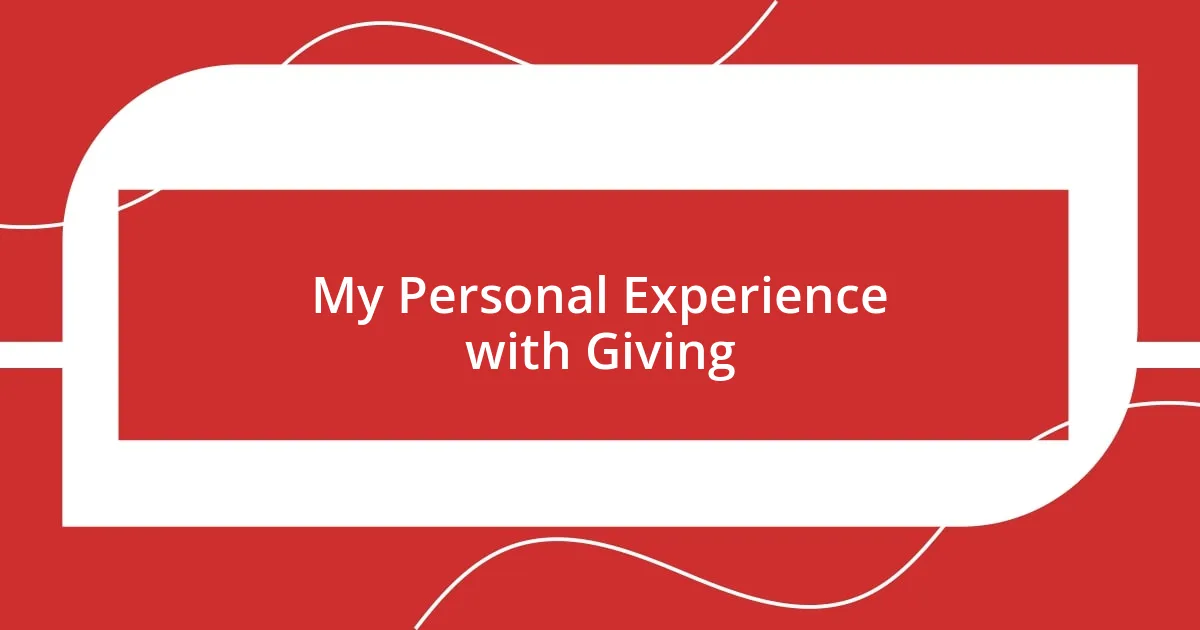
My Personal Experience with Giving
Giving has always felt like a core part of my identity. I recall my first experience donating to a local food bank. It was a small act, yet when I volunteered there, I saw firsthand the faces of those receiving support. Their gratitude was overwhelming, and it ignited a passion in me to contribute more regularly. It reminded me that every small gesture can bring warmth and comfort to those in need.
Later, I participated in a community clean-up initiative that combined giving with hands-on effort. I can still remember how refreshing it felt to see the tangible results of our hard work. As we transformed a neglected park into a vibrant community space, I realized that giving is not just about money; it’s about time, energy, and commitment. The smiles on the faces of children playing in the newly clean park were priceless.
Throughout these experiences, I’ve learned that the connections we forge through giving can be as impactful as the contributions themselves. For instance, during a charity drive, I connected with other supporters who shared similar passions. Those conversations enriched my perspective on various social issues and inspired me to broaden my giving scope. I often wonder how many lives we could touch if more people felt empowered to give, even in the smallest ways.
| Experience | Impact |
|---|---|
| Food Bank Donation | Emotional connection with recipients |
| Community Clean-Up | Tangible results through teamwork |
| Charity Drive Connections | Broadened my perspective on social issues |
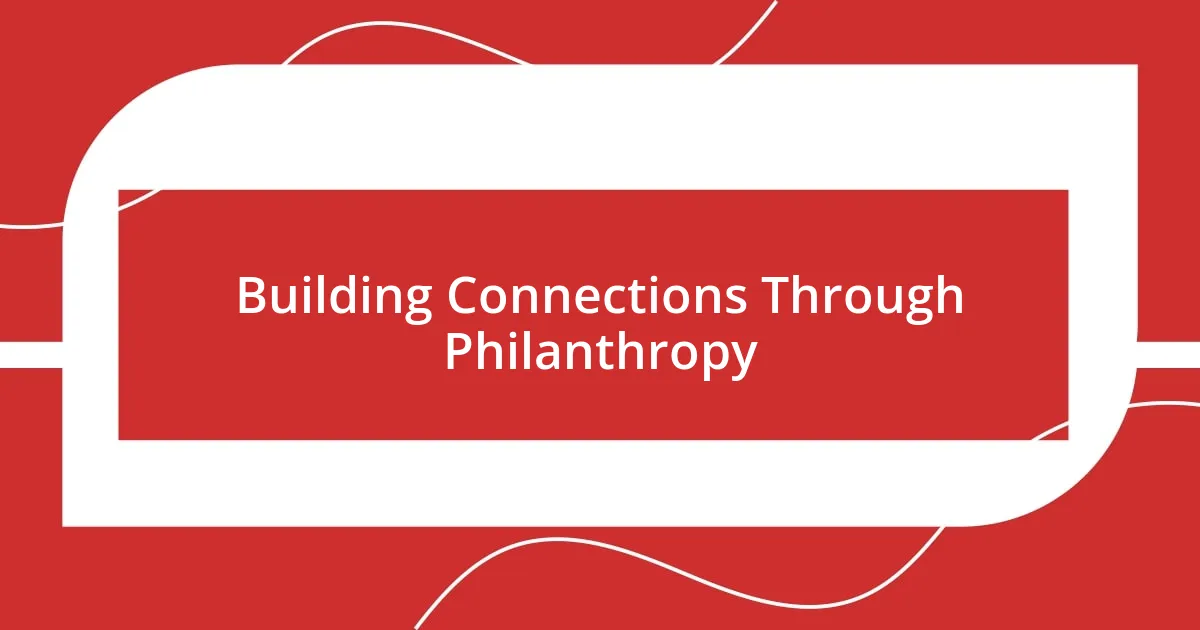
Building Connections Through Philanthropy
Building connections through philanthropy is one of the most enriching experiences I’ve had. It creates bonds that extend far beyond the act of giving. One time, I joined a group organizing a charity dinner for a local shelter. As we shared stories over the meal we prepared, I realized that our collective passion for helping others transformed strangers into lifelong friends. That common goal fostered a sense of family, connecting us deeply to the cause—and each other.
- Personal stories shared during fundraisers can ignite a community’s commitment.
- Collaborating on projects allows for teamwork that strengthens relationships.
- Meaningful dialogues during events create a deeper understanding of social issues.
- Celebrating successes together enhances feelings of belonging and empowerment.
Every encounter reminds me that philanthropy is more than just financial support; it’s about nurturing relationships and growing together as we strive for a shared vision of compassion.
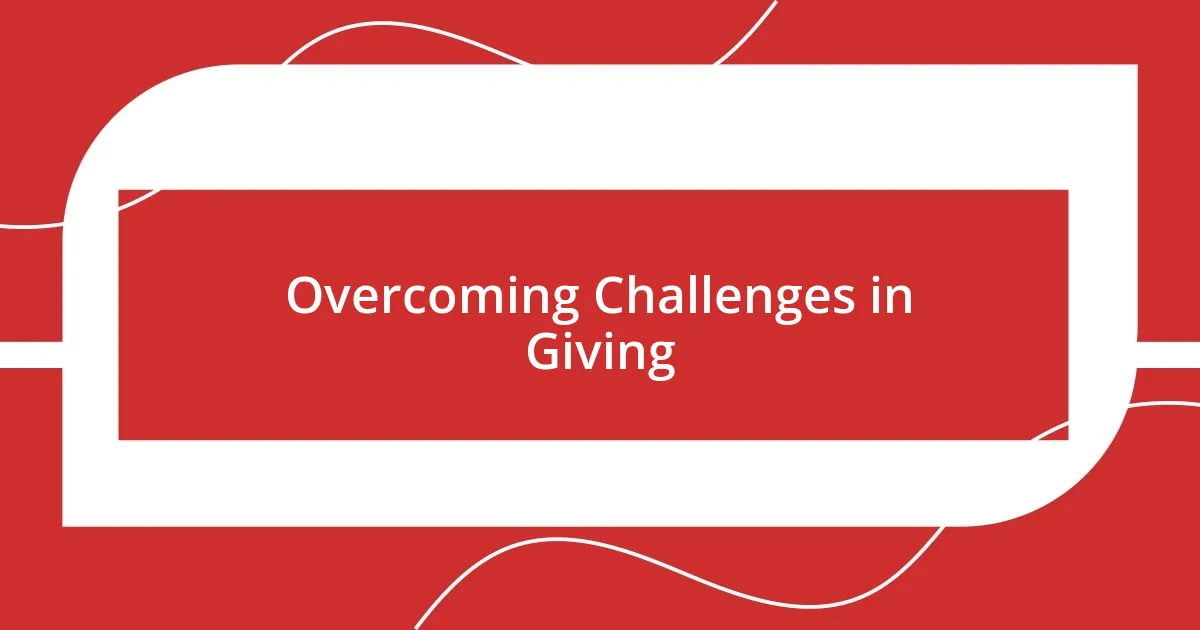
Overcoming Challenges in Giving
Over the years, I’ve faced various challenges while trying to give back. There was a time when I grappled with the perception that my contributions were insignificant because they weren’t large monetary sums. It took me some reflection and conversations with fellow givers to realize that every bit counts. I often ask myself, “What if my small donation inspires someone else to contribute too?” That thought alone made me push past my insecurity.
Another hurdle I’ve encountered is the overwhelming feeling of choice paralysis. With so many causes out there, how do I decide where to direct my efforts? I remember standing in front of a list of charities, feeling lost. It was a mentor who encouraged me to start with what I’m passionate about—animal welfare. Once I honed in on that, everything clicked into place. I found that my enthusiasm not only fueled my efforts but also made my contributions more impactful.
Lastly, there are times when circumstances just seem too daunting. I vividly recall a project that I was deeply invested in falling apart due to unforeseen challenges, leaving me feeling discouraged. Yet, reflecting on how much I learned through that experience helped me understand that setbacks are part of the journey. They often lead to growth and better strategies for future initiatives. I often wonder, how can we reshape our setbacks into stepping stones? Embracing this mindset has been pivotal in my ongoing journey of giving.
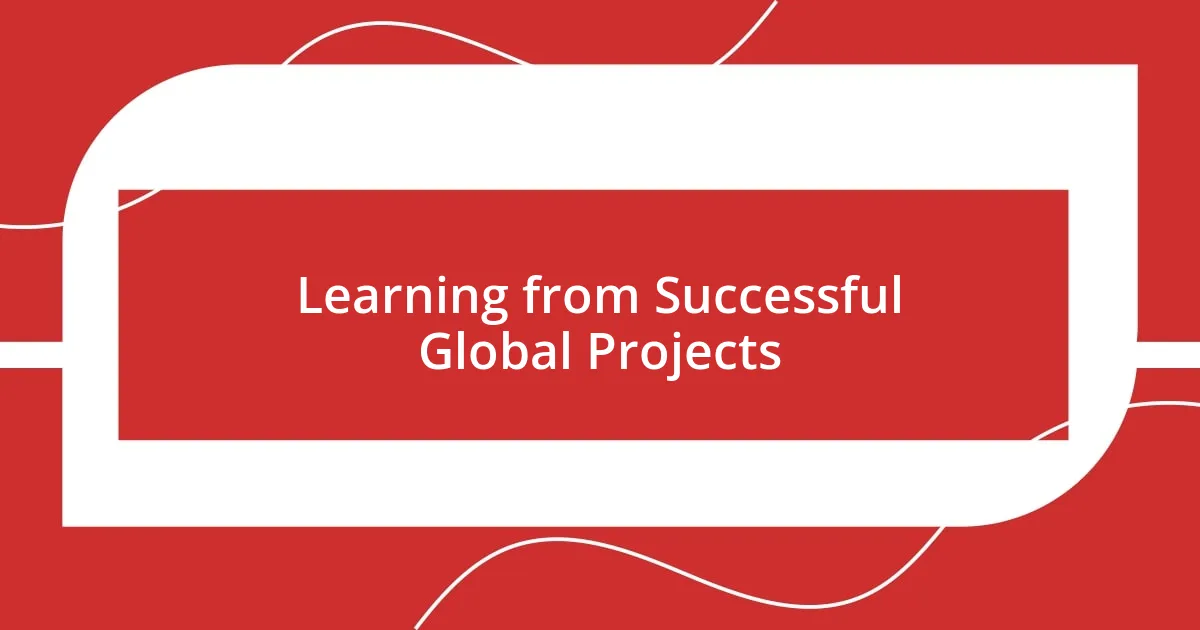
Learning from Successful Global Projects
Successful global projects offer a wealth of lessons that can significantly enhance our understanding of effective giving. One initiative that stands out to me was a school-building project in a remote village. Observing the impact of this project taught me that community engagement is crucial; when locals are involved from the planning stage, they’re more likely to embrace and sustain the project. I still think about the joy in the eyes of the children when they entered their new classrooms for the first time. It made me ask, how can we ensure our giving isn’t just a momentary act but contributes to lasting change?
Another memorable experience was my involvement in a health awareness campaign across different countries. We discovered that tailoring our message to resonate with local cultures dramatically increased its effectiveness. It was fascinating to see how a simple adjustment in communication style not only improved participation rates but deepened the community’s investment in their health. This led me to reflect on the importance of cultural sensitivity in global giving—how often do we overlook the unique narratives of different groups when trying to help?
Lastly, I’ve found that evaluation and feedback are crucial in learning from successful projects. During one fundraising event, we gathered attendees’ thoughts afterward. The insights we received were invaluable, revealing areas for improvement I had never considered. I often ponder, how can we create a culture of open dialogue that encourages constructive criticism? Embracing this feedback transformed my approach, allowing me to appreciate that the journey of global giving is just as important as the destination.
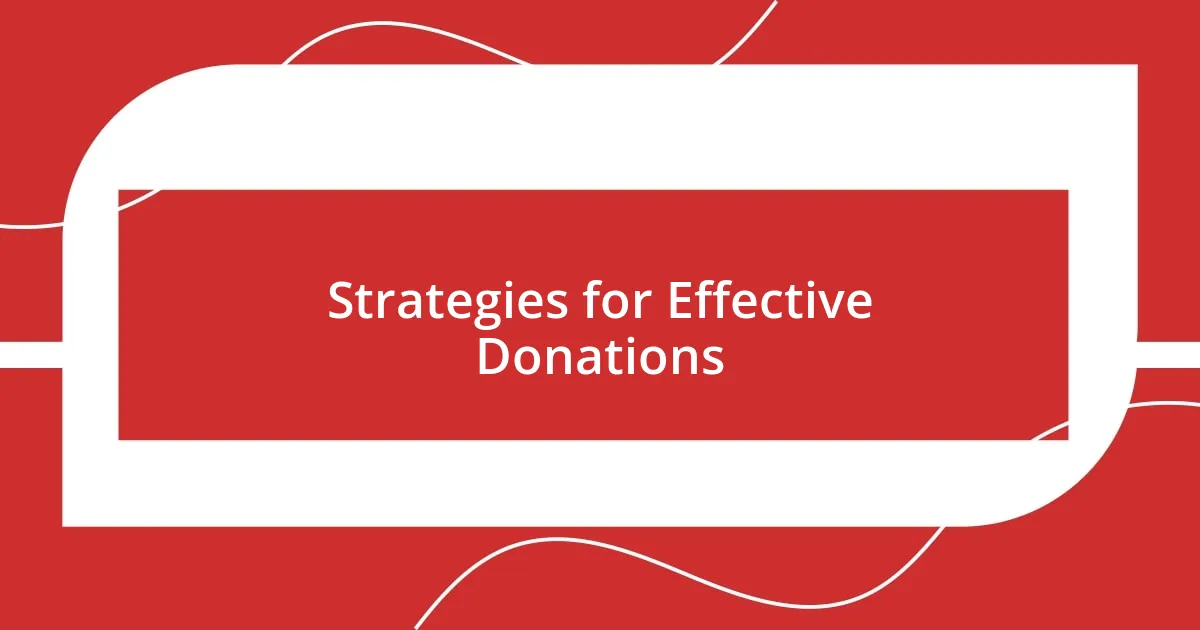
Strategies for Effective Donations
When it comes to making effective donations, I’ve learned that setting clear goals is essential. A few years ago, I participated in a fundraising campaign that aimed to provide clean water to a village in need. Initially, I didn’t quite know what to target, but once we specified the exact amount needed for a well, I felt more driven. I began asking myself, “What specific impact do I want my donation to make?” This clarity allowed me to communicate the importance of our cause more passionately, motivating others to join our efforts.
Another strategy that’s enhanced my approach is researching the organizations I support. I remember considering a donation to a charity focused on education, but I dug deeper into their financial transparency and past projects. Learning about their successful initiatives reassured me that my contribution was in capable hands. It made me think, why wouldn’t I want to understand where my money goes? Gaining insight into an organization’s practices not only builds trust but also invigorates the donor’s commitment.
Lastly, I’ve realized that sharing my giving journey amplifies its impact. When I recount my experiences and the reasons behind my donations, I invite conversations that spark curiosity among friends and family. I vividly remember a chat with a friend after a community event—I shared the story of how a small contribution improved local literacy rates, and it inspired her to get involved. I now find myself wondering, how often do we miss opportunities by keeping our giving experiences to ourselves? By opening up, we can ignite a ripple effect of generosity in our circles.
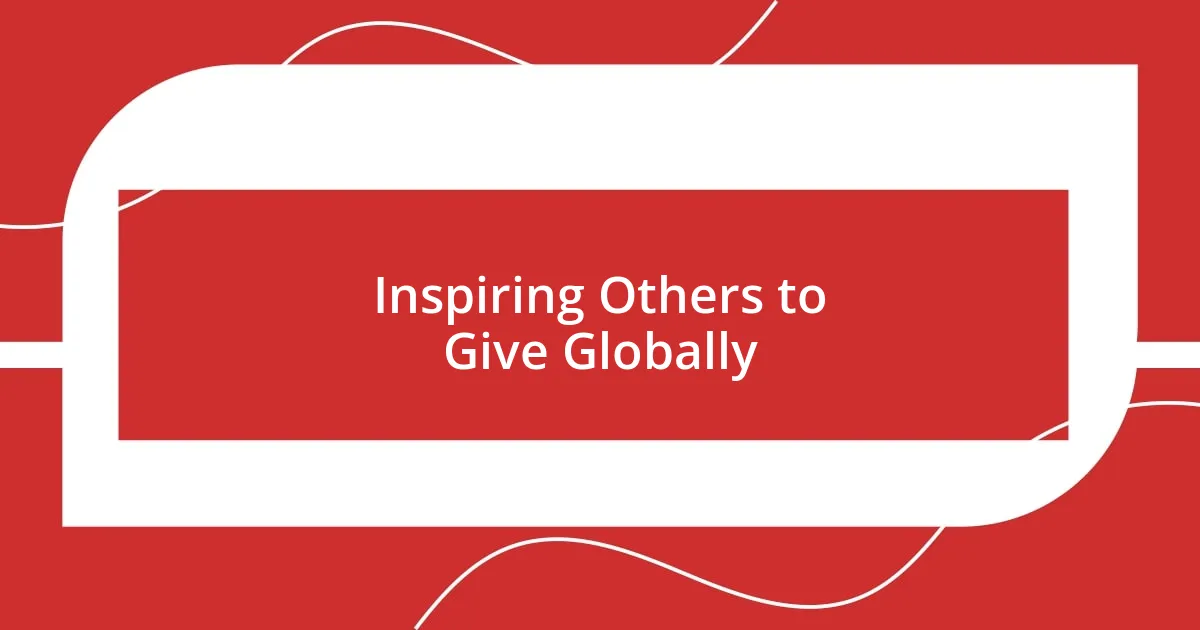
Inspiring Others to Give Globally
I often find that sharing powerful narratives can spark a desire in others to give globally. One of the most emotional experiences I had was during a visit to a refugee camp. I witnessed the resilience of families who had lost everything yet were willing to help one another in small but impactful ways. It made me realize that when we share these human stories, we connect on a deeper level. Have you ever felt compelled to act after hearing someone’s story? I have, and it’s a reminder that our experiences can be transformative.
When I led a workshop on global giving, I encouraged participants to reflect on their own motivations for supporting causes beyond their borders. It was striking to see their excitement as they discussed personal connections—whether through travel, family ties, or shared values. Seeing their eyes light up as they recognized the potential impact of their contributions reinforced my belief in the power of storytelling. Isn’t it amazing how a simple conversation can lead to a more profound understanding of global issues? I think that these dialogues not only inspire empathy but also foster a culture of giving.
In my own giving journey, I’ve discovered that involving others amplifies the impact. I organized a community drive to support education initiatives in underserved areas, but instead of simply asking for donations, I invited people to join the planning process. I was surprised by the enthusiasm that emerged—a local artist created a mural that represented our mission, and suddenly, everyone felt a sense of ownership. I often wonder: how can we empower others to see themselves as agents of change? By building a collaborative spirit around our giving, we can inspire a broader community to embrace global causes.

